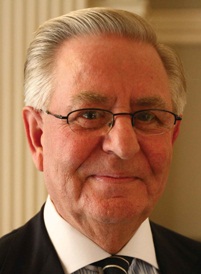Hypocrites are bartering Egypt’s culture.
Grab a falafel or a bowl of koshari. The guy knows you’re good for a couple of guineas. He’ll risk you won’t hop off without paying. You take it for granted their grub won’t poleaxe you.
Everyday bargains pooh-pooh legal mumbo jumbo. They’re the customs, the dignity mores, behaviour binding trust and respect unregulated by paper pacts.
The constitution hullabaloo goes against the grain, a fescennine mockery of justice.
Let’s face it, the Muslim Brotherhood’s leaders aren’t Spring chickens. They’re X Factor contestants blinded by newfound fame. Adrift from reality they ponder their legacy.
None puts self in danger of martyrdom. They hanker after a tagline, “Led Egypt into the Shari’a era,” would be a good bet.
Egypt has seen through the ploy. SCAF (Supreme Council of Armed Forces) always suspected the Brothers’ motives. In Revolution II the generals are PR-minded.
How else to explain their tactics? Outside the palace, when the crowds first grouped, the presidential guard acted meek as a chirm of finches. When kids snipped through the barbed wire, they were let through.
The shemozzle to get the rules right in the new era isn’t going to be over in a few weeks.
I hope not.
Look what happened when George W. Bush stampeded Iraq. Their so-called constitution isn’t worth the paper it’s written on. Revenge is the lava that erupts from volcanic events.
South Africa, for all its faults, took five years to get down on paper the new era they craved. Their internecine fight matches Egypt’s. Their saving grace was a truth commission, sapiently releasing anger to spill where hurt harbours healing.
Their precognition was to scour the earth for examples of reconciliation.
We took jurisprudence from Canada. We took power sharing from Germany. We took constitutional principles from Namibia, says Nicholas Haysom, Mandela’s legal advisor.
“We were shameless,” he told the New York Times columnist Bill Keller, a former Johannesburg bureau chief revisiting the revolution he chronicles.
Intolerance flowers on the rootstock of isolationism. Israel? Hogtied, listening only to kith and kin. Jaundiced views prevail. Everyone else is wrong, they conclude in ignorance.
It’s a warning to new Egypt. What’s missing today is the responsibility of citizenship over tub-thumping patriotism. We are all Egyptians, the protesters cry.
They turn Cupids into cupidity. Self-righteous greed and avarice are evil bedfellows.
The glow of communion, the comfort, patting each on the back, tingles when violence breaks out.
Egypt teeters on the edge of disaster, just as perilously as America facing its most serious threat to its own security in 1941.
The most sagely speech on freedom in the 20th Century was President Franklin D Roosevelt’s State of the Union. The centrepiece comprised four essential freedoms, as he put it.
First: Freedom of speech and expression. Second: Freedom of worship. Third: Freedom from want, and fourth; freedom from fear.
Roosevelt described it as a definite basis for a world attainable in their own time and generation. He said that kind of world was the antithesis of the so-called new order of tyranny sought by the dictators of his day.
Locking up Alber Saber in Egypt for, “contempt of the Muslim and Christian religions,” is an obscene abuse.
Elevating Shari’a law denies people the right to worship God in his own way. Failing to rout the injustice of poverty is cruel. Sly legalisms that justify unleashing the militia on peaceful protesters defy Roosevelt’s freedom test.
Roosevelt’s fireside chats on the radio are being emulated around Egypt’s dinner tables, the cauldrons of this conflict. The revolution is being crisped, family style, rekindling the essence of life.
No higher than a grasshopper, the gymslip daughter of the house explains to a worldwide TV audience the complex issues in perfect English, loading her plate with spaghetti, passing a mug of tea to her veiled mum.
She says nobody offers hope. Her mum says teachers demand exorbitant ransoms for after-school tuition. Meat is a memory. New clothes are hand-me-downs.
Dad says, his factory shuttered, he’s reduced to day labouring. He rues coming back.
When he worked briefly in New York in the early 1960s each of his Egyptian pounds bought 10 packs of smokes. Now in Egypt, a pound is worth a nickel and a dime.
Indifference and incompetence imperils Egypt’s wealth.
Murder’s out of tune and sweet revenge grows harsh – Shakespeare’s Othello.
Philip Whitfield is a Cairo commentator.



